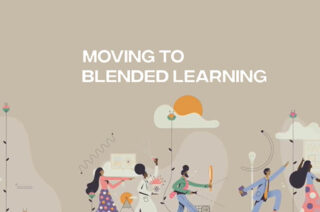Factsheet: Embedding Social Responsibility In the Curriculum

Introduction
The University of Manchester’s Social Responsibility website describes goal 3 as:
“…the way we are making a difference to the social and environmental well-being of our communities through our teaching, research and public events and activities.”
Although this explains some of what could be described as contributing to the University’s Social Responsibility goal, it can also be quite confusing. To make it simpler, it can be broken down as such: “Social” Responsibility doesn’t refer to the impact being only social in nature, it incorporates a wide range of activities contributing to the environmental and economic (as well as social) wellbeing of people, areas, nations, etc. Staff should not feel obliged to contribute, but rather see this as an opportunity to do something if they want to, with the support of the university/line managers, etc.
The University breaks down elements of Social Responsibility into the following themes:
- Research with Impact: research that addresses a social, environmental or economic problem.
- Engaging our Communities: communicating research outcomes to non-specialist audiences or involving these in teaching / research at the university.
- Responsible Processes: a mix of things, includes Equality/Diversity/Inclusion and “responsible procurement”…
- Environmental Sustainability
- Socially-Responsible Graduates: basically anything that exposes students to an element of social responsibility (volunteering, etc.)…
As a general guide, if you can incorporate one or more of the top 4 themes into a course, you will by definition be contributing to the last theme as well!
Embedding Social Responsibility in the Curriculum
Social Responsibility is Goal 3 of the University of Manchester, sitting alongside Teaching and Research. Aside from being a useful concept to pursue and expose students to, it has also been incorporated into promotions criteria, where it can be evidenced through research, external engagement, service/leadership or teaching. The evidence that needs to be provided for the last of these areas is written as:
“a record of development of activity that integrates social responsibility into the curriculum.”
Arguably teaching is the easiest area to incorporate an element of social responsibility for the majority of staff.
Examples from FSE
- CHEM20711: ‘Contemporary Themes in Chemistry’ – a unit designed to introduce students to chemistry in the real world. It integrates current research at Manchester (Research with Impact) to Environmental Sustainability challenges such as chemical manufacture, clean/safe drinking water and future energy requirements.
- CHEM20712: ‘Environmental and Green Chemistry’ – introduces students to the principles of Green Chemistry, alternatives to finite resources / petrochemicals and the environmental challenges and anthropogenic effects on climate change (Environmental Sustainability).
- EART41000: ‘Topics in Earth Sciences’ examines wide ranging issues in applied geoscience including the search for a site for radioactive waste disposal, and shale gas extraction and CO2 sequestration.
- EART30172: ‘Mineral Deposits’ covers ethics and professional codes of practice, along with the importance of Community Engagement in mine development.
- PHYS10622: ‘Physics of Energy Sources’ includes coverage of the geopolitical background of energy and renewable sources (wind, solar, hydroelectric, geothermal), their impact on ecosystems as well as general information relating to energy production, transport and storage – Environmental Sustainability.
- PHYS40181/40181: ‘MPhys Project’ which can offer topics with a Social Responsibility aspect. Recently these have included `Antibacterial graphene films’, `Design of variable plasma diffraction gratings for detection of concealed weapons using microwaves’, `Non-Markovian evolutionary games’, `Analysis of archival Landsat satellite data for earth observation test site Barrax’.
- MATS16402: ‘Materials – Shaping the World’ is an overview module which introduces first year students to the applications of different materials. It includes coverage of factors affecting new material developments, including environmental issues and degradation – Environmental Sustainability.
- MATS34502: ‘Business Ethics Sustainability and Corporate Social Responsibility’ provides a grounding in Sustainability and corporate Social Responsibility regarding the ethical dimensions of economic, political and cultural impacts.
- CHEN10162: ‘Engineering Biotechnology’ – this unit introduces students to the Environmental Sustainability challenges faced globally in this day and age. The applications of biochemical and bioprocess engineering are discussed as well as how these subdisciplines contribute to greener industrial processes.
- CHEN40201: ‘Sustainable Development & Industry’ – a dedicated unit which features guest lecturers from industry to emphasise the relevance of sustainable development and Environmental Sustainability across various sectors. Students are also introduced to life cycle assessment and ethical decision making.
Who to contact
For more information contact your Director of Social Responsibility.


